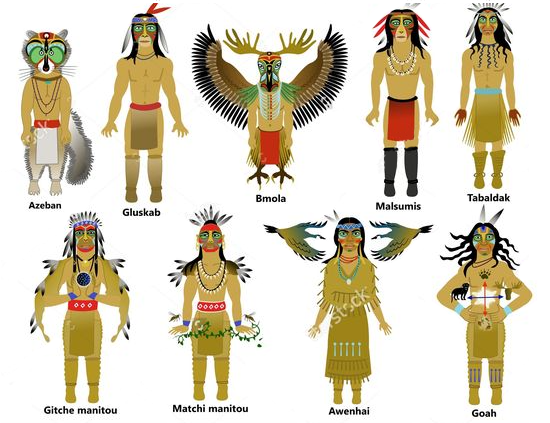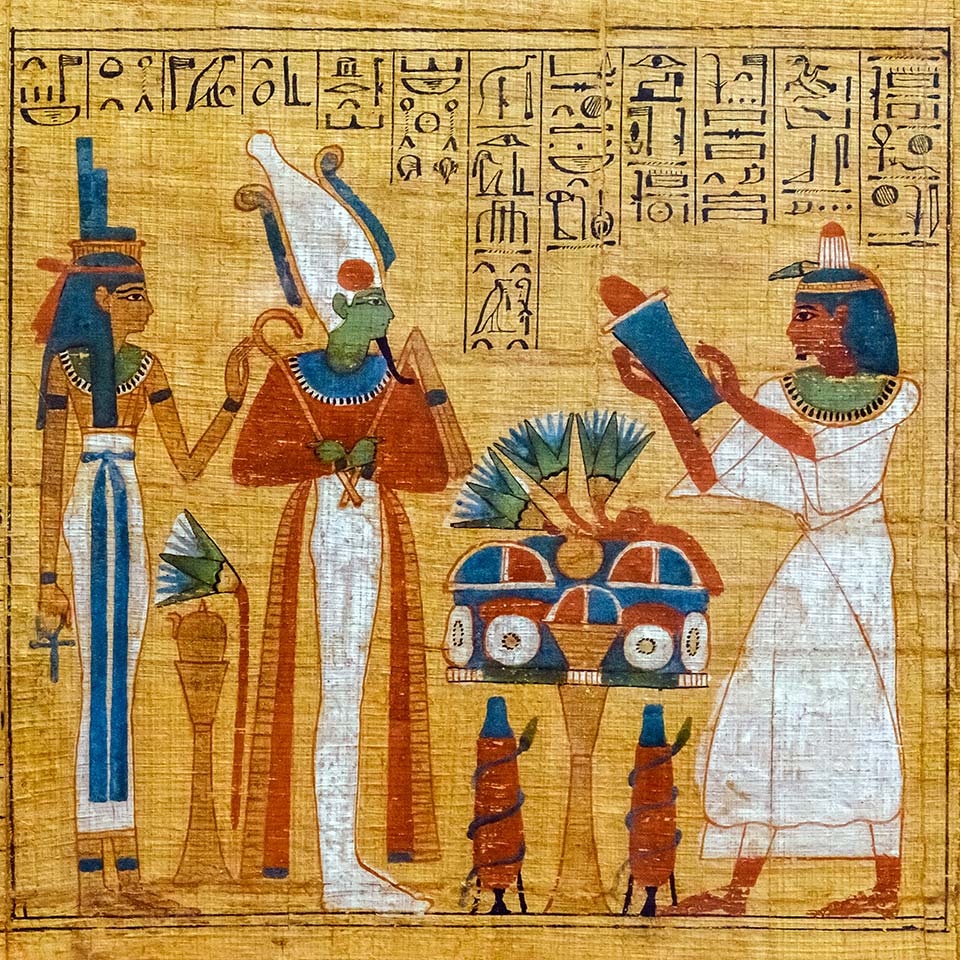A View From God’s Perspective
With this headline, you might ask, “How can anyone know God’s perspective?” We don’t presume to speak for God. Instead of pursuing God from our perspective, we’re encouraging readers to consider approaching pursuit of God from His perspective based on what we know about the Creator’s perspective.
If we drew a line representing a belief system we thought led to God, we would miss him in all cases but one. Unless we know God’s story, that one case would connect if we accidentally, randomly happened on to that story. Without God sharing His story with us though, we are just guessing what His story is. The odds of getting it right by chance are very small.
There is only one true story about God, thus only one arrow applies. Contrary to a popular idea inspired by a Humanist and Hindu belief, all religions (or paths) do not lead to God…at least not the real God who created us. The illustration below demonstrates why.

For example, each red arrow in the picture represents a religious doctrine we may adopt when we try to reach out to God.
From this illustration, it might seem like we could draw a large number of arrows to God. Here’s why that is false…suppose that people were creating theories about your life instead of going to the source (you) for the truth?
You know they have it wrong.
An Illustrative Theory
Suppose one theory thought up by humans claims your father was part turtle and your mother was part rabbit. That explains why you are difficult to approach and you are quick to run away from people. It’s a story that is philosophical and symbolic, but it is contrary to our experiences. We know you aren’t part animal. It’s a simple illustration for understanding the problem with making up theories. It doesn’t lead to the real God because it doesn’t originate from God.
What if many people were convinced to believe this theory? Or maybe it seemed to make sense in early history and when proven wrong, it just kept going as a tradition. Some American “First Nations” people have part animal and part human being gods in their religious beliefs. Hindus accept the idea that animals, like humans, have souls that are all part of a great soul (God). So this illustration isn’t far-fetched.

Charming But Distracting
It seems logical on the surface, in a shallow way. A turtle shell is hard and shields what’s inside making it difficult to approach, and a rabbit is fast and quick to run away.
But wouldn’t focus on such charming, fantasy traditions distract people from the truth about God? Not that we think being butted in the rear end is allegory for the truth about God, but we think this illustration demonstrates how we can get distracted by unimportant things while missing bigger, more important things.

These made-up theories may be philosophical lessons for families raising children. They may be Fairytales like Santa Claus, created to get children to think about bad behavior and seek rewards for good behavior. They may not be attempting to describe real gods they believe in. Some religions are based on philosophies to live by and aren’t interested in believing in the supernatural.
Or maybe some people just accept these religions without investigating them because they are popular. People who don’t bother with investigating might accept the theory if it sounds logical, just to be included with the popular group. But all of these approaches don’t help find God’s true story, and they will only lead people astray from finding the truth.
There is only one thing wrong with this approach…it distracts people from seeking the real God, and finding God may be important to your life.
Ramifications For Following a Wrong Belief
If the “Turtle/Rabbit” theory was made up about you, you know it isn’t true because you know your life story first-hand. Yet many people may choose to believe it is true without looking into it simply because it seems logical on the surface or it is popular. The theory is misleading, and it puts people off track to the truth about you.
Suppose that theory was made up about God instead of you. Now the theory becomes a religion, and belief in that religion leads its followers astray from the actual truth. The religion can be completely comprehensive and cohesive, and it might even be functional and help people cope with their lives, but be completely off base to the truth about God.
This is a behavior identified by group psychology. And this group behavior doesn’t only happen regarding religion; it happens with people groups in society believing things about other people groups that aren’t true, dividing them from each other – many times in harmful ways. This is especially a big problem in politics; attempting to make one’s political philosophies more important than other’s political philosophies. It’s unhealthy and makes the environment we all live in toxic and unnecessarily ugly.
Summing up, this illustration shows that the best approach is to go to the source.
Note: Some may not care if they believe a theory about the real God that isn’t true. They may choose the comfort of their traditions over the foreign context of life with the real God. But if a true God exists, as the Judeo-Christian Scriptures assert, then the quality of your eternal life is at stake, and following a distracting theory can lead to bad things.
Shifting Perspective

What would God’s Perspective Be?
This might be a point at which a skeptic might quip, “You are creating God in YOUR image, not the other way around”. Let’s hear God’s perspective from His own mouth.
But wait a minute! The material used here is ancient. Just the written part is 5,000 plus years old. The oral tradition is far older than that. If you examine the Judeo-Christian Scriptures and the oral tradition, it is as old as humanity itself. God’s own Words are said to have been written on a tablet and given to Moses. We aren’t just making this up; we are making sense of what is there. That ancient story was written as early as humanity could read and write.

Tools like historiography have been used to scrutinize the integrity of the Judeo-Christian Scriptures and have found them to be very trustworthy to the original. They are the most studied and analyzed of all ancient documents in history.

Those writings tell us that God Himself wrote down the creation story and the first five books of the Judeo-Christian Scriptures. So by the time Moses came along, reading and writing had been around for some time, and the oral stories had been given by God Himself in written form. The question of how accurate the oral story of our origins could have been was addressed when God wrote it on tablets and gave it to Moses.
If anyone was there to witness the beginning, it was God Himself. Do you know of another story that ancient that so coherently and comprehensively flows from our origins to now? Not even science and the “Big Bang” can make that ancient claim.
A Skeptics Argument
A skeptic argues that ancient people weren’t that sophisticated because of how raw life was, you know, cave paintings, animal skin clothes, stone tools, etc. But to say that a story that goes back to the beginnings of humanity and so seamlessly addresses our origins is “too simple” is to say that they weren’t backward, superstitious, or ignorant, but rather, very sophisticated to come up with such a bullet-proof “story” about our origins and answer the most profound questions of life. This is an argument that takes both sides at the same time, depending on what benefits the argument.
You can speculate all you want, but you wouldn’t be here if you weren’t at least curious about this perspective. Maybe you’re even really interested in what we present on this site.
We need to do some groundwork to come up with some reliable study criteria concerning God’s purpose in creating us. We assume God created the physical universe and temporarily placed us in it. God had a purpose for creating us and a physical universe. Who disagrees that this physical life is temporary? We’d like to hear from you.
(What question(s) would you ask here? Maybe we have addressed them elsewhere on this site, or maybe you have a question we haven't addressed. No question is wrong here and makes for great discussion!) Go to the bottom of the page for a form to add to the discussion.
A Natural Starting Point To Look For God’s Perspective
A natural starting point would be to ask, “What purpose did God have in creating this physical universe and putting us in it?
To explore our question, we might wonder, “How can I ask God why He created us?” After all, we decided we should get His perspective, and He is the source. We should go to the source. But with a wide array of human ideas about that, we wouldn’t be helping in your quest for the truth if we led you to our ideas at this point. You need to be able to make up your own mind about your relationship with God. (We do have a solution to this question, by the way.)
But we might want to turn to other ways of gaining knowledge about God’s will and purpose for His creation for now. Make sense?
Hopefully “how to talk to God” will surface in that exploration. So let’s look at some things to get at God’s perspective.
Think About God’s Will and Purpose For Our Existence
Wouldn’t God, having gone to the trouble of creating us and a physical universe to place us in temporarily, want to share the reason for this with us? And wouldn’t He want to do that, beginning with the first people?
How does an invisible God talk to physical beings like us? We are literally living in different universes.
It’s uncommon for God to talk directly to us audibly. There must be other ways God is attempting to interact with us. We’ll explore this more on this site.

Even if God created only one of us, that one person would be a big part of His creation because He can interact with them. Yet God made lots of us. How can we interact with God if we don’t know how to interact with Him? He is invisible to us; how do you interact with someone you can’t see? How do you have a relationship with someone who isn’t tangible in a physical sense?
Would God create us just to power us up and let us go on our own and without any interaction with Him? Do you think He went to all that trouble creating us for some kind of display like a giant ant farm or a kinetic sculpture for His coffee table to entertain Himself? That seems very unsatisfying.
Some people come to that conclusion because they haven’t interacted with Him or seen anyone else interact with Him. But missing that exchange doesn’t mean it doesn’t happen.
We Were Created for Interaction – It Makes No Sense Otherwise
Even without personal interaction, He interacts with us through the Judeo-Christian Scriptures. They were given just when you would expect them to come if God wanted us to know why we are here.
We can see God’s purpose for creating us in our universal human characteristics as well. Why would God choose to make us with free will and the independent ability to make decisions? These are two characteristics common to each of us.
Generally, independent decision making can bring self-destructive outcomes that God has chosen not to control in creating humans. We can also choose to do good.
They are characteristics that could invite trouble in interaction with God.
Imagine, instead of choosing to love and interact with God, some chose to question, hate, and distrust Him. Why not just create beings slaved to His will and idea of things? There is at least one purpose to this.

God’s Perspective – We Are Created For Quality Interaction
Wouldn’t the fact we have free will and the ability to reason on our own, unfettered by God, be a clue that our purpose is far more than just kinetic sculpture? If God created us for interaction, He wouldn’t want puppets that thought, said, and did exactly what he wanted, would He? Would you? Seems hollow and empty, and completely unsatisfying. He would want beings that can interact independently and could either choose or reject Him.

Of course, being God, He knows us intimately since before we were created, and He knew before any of us were created who would accept or reject Him. So this doesn’t seem like something He needs. He could just say, “You go there, and you enter into your rest with me.” It’s for justice and His great name’s sake that He let’s each of us play out our lives – so we can know, beyond doubt, who we are and where we belong in eternity.
This is why He created us and remained invisible and only interacts with those who proactively seek Him.
Separated by higher dimensions and selectively choosing when to interact with us physically results in the anonymity God for those who are unaware of His being. When we are unaware of God watching, we make our own decisions.
Why This Physical World?
Well…we don’t know if we will ultimately pass the test of “acceptance or rejection” from God. He sets the criteria for that. So maybe this temporary life is a kind of a dry run for eternity. Perhaps this is where we build our testimony, revealing our hearts and thoughts about God “for the record”.

Once that testimony is built, there is no more need to dwell in this temporary world. That’s when we pass out of this brief life and enter eternity, where we will meet God, and He will assign us a place to dwell or bring us into His Kingdom based on our testimony. Our being here physically seems like part of a sorting process.
This physical life is literally where “actions speak louder than words” as we build a testimony for how we lived our lives.
We don’t want to end up in eternity where there is weeping and gnashing of teeth. Remember, God is invisible and undetectable unless we seek Him purposefully. Our testimony will tell all.
God’s effort in creating us tells us that there is far more to our purpose than entertaining Himself. Wouldn’t it be rewarding and satisfying if God’s creation chose to interact with Him? Would it be for you if you were God?

One premise we use on this website is that God created us for interaction. So if God chooses not to speak with people in an audible voice, how else would He communicate with us? We have a page found >>here<< to discuss that!
Send your thoughts and questions on our view of God’s Perspective
Powered by WordPress




